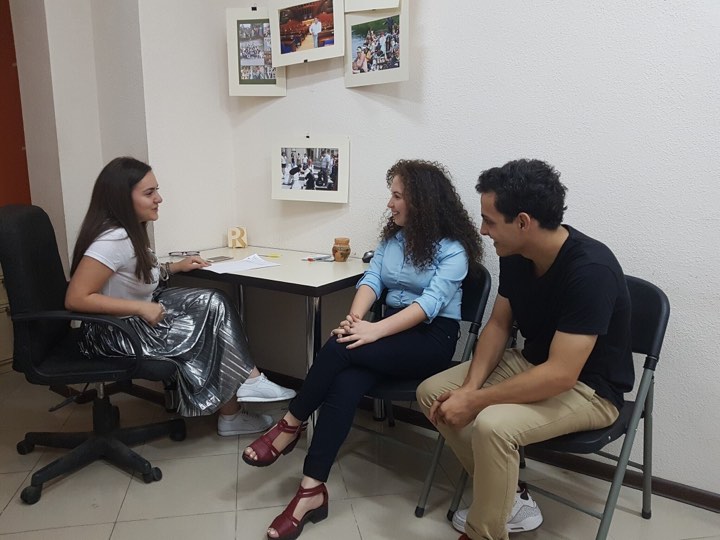This article is part of a series of stories written by the young people who took part at our seminar “A call for peace for all”. They include real life stories of people who left their countries and/or information about migration in one of the European countries where MIJARC Europe has members. All those whose names or any other identification data appear in the articles have given their written consent for making this information public.
In the context of the topic chosen for this year by our member movements – peace – we have launched an online campaign of peace messages and quotes under the #nevertakepeaceforgranted slogan. This campaign is part of our work plan which also includes two international activities and a travelling exhibition on the topic of peace. The first international activity of our work plan was preceeded by a preparatory phase during which our members had to interview/discuss with at least two people who had left their countries and are now know as “migrants”, “refugees” or “asylum seekers”. To our members they are just people, as are those living next to us. They have emotional and unusual stories, they live in different conditions but as our participants discovered they have not forgoten to be kind, tolerant, open and to forgive.
Here we bring you the article written by the participants from Armenia.
Article written by:
Armine Movsesyan
Seda Mkrtchyan
Yeghiazaryan Diana
Being considered as the worst humanitarian crisis of nowadays, the Syrian refugee crisis is one of the major and complex issues in the world. According to Armenian officials, more than 22,000 Syrians have been forced to leave their homes and come to their ancestral homeland since the start of the conflict in 2011. By 2015, the United Nations refugee agency said Syrian refugees accounted for six of every 1,000 people in Armenia.
Currently, Syrian Armenians have various legal statuses in Armenia, including Armenian citizens (dual citizens), refugees, asylum seekers, and persons with temporary or permanent residence (one/five/ten years). According to the Armenian Ministry of Diaspora a total of 10,707 people received citizenship in the period of 2012-2014. Refugee and asylum seekers comprise a smaller number, around 700-800 Syrian-Armenians, for the period of 2012-2013.
According to the Migration Service of Armenia: 236 people were granted asylum, of which 136 provided with shelter. Considering the regional developments and multiple challenges Armenia faces today, the need for a relevant infrastructure to address the social and economic issues of Syrian-Armenians becomes extremely urgent.
The arrivals are still ongoing (86 persons in 2017). It should be noted that Armenia also hosts refugees and asylum-seekers from Iraq, Ukraine and Iran and smaller numbers of refugees from some African countries. Moreover, about 600 of the persons displaced in consequence of the escalation of the Nagorno-Karabakh conflict in April 2016 remain in Armenia and have been now integrated into the general assistance and integration activities.
*
We were pleased to have a talk with Ramella Khanoyan, who left her home in Aleppo, Syria and came back to Armenia during the war.
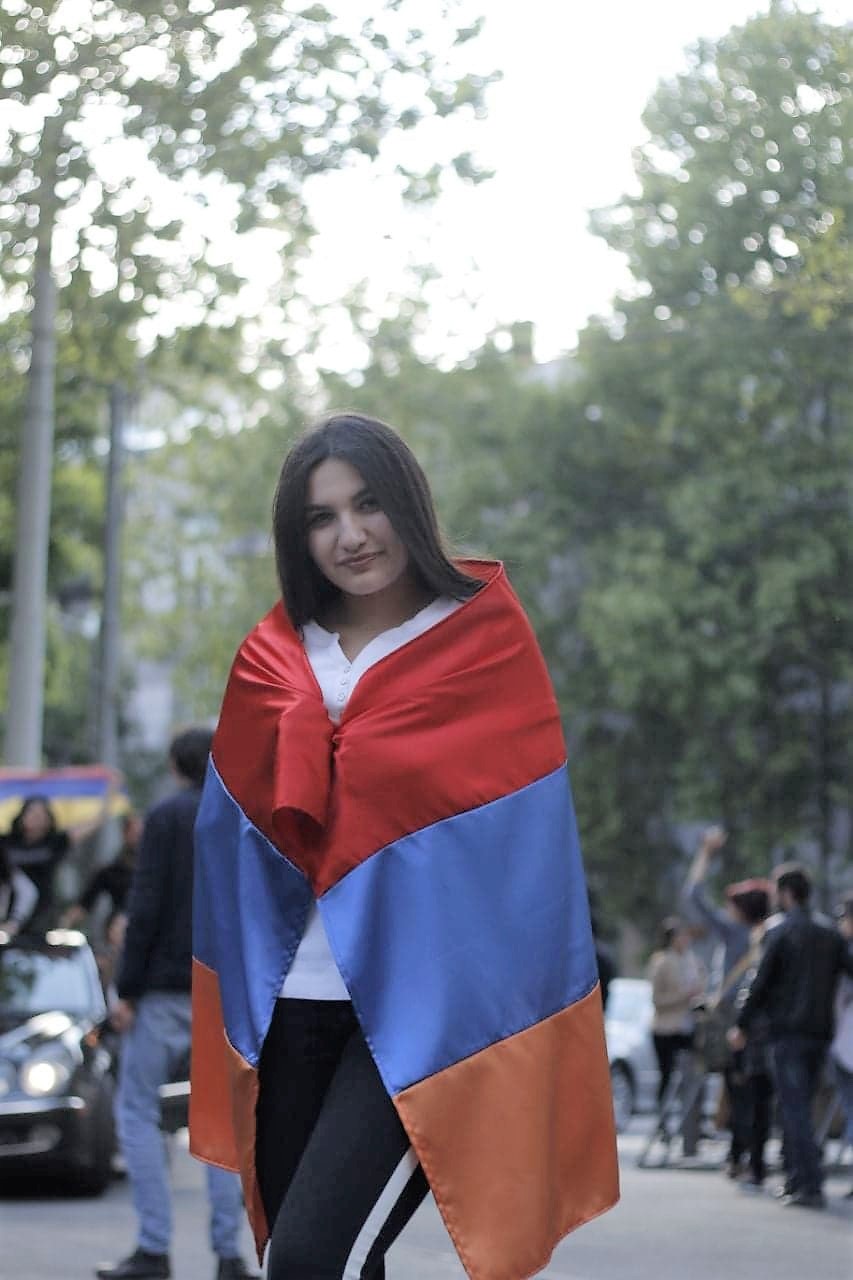
“I arrived in Armenia with my family several years ago. I was 11 years old, when the war began. At first, I couldn’t believe that it was a reality. The first shock happened in March 2011, when I was going to take part in a dancing concert in Aleppo. I had waited for that concert so much. It was one of my biggest dreams to participate in it. We were practicing at the hall with my friends and tutors, when suddenly the first bomb exploded. At first we couldn’t imagine that a war started. We felt like unconscious people, but in a few minutes realized that it is not a dream. We escaped from there, and everything got cancelled. Afterwards, similar attacks occurred and I started getting used to it. I have lost a lot of acquaintances, friends and neighbors day by day. The situation gradually became worse and worse, and my parents made a decision to abandon. I remember how frightening it was our way to the airport. We took a taxi, can’t remember how luckily passed the border and immediately went to Damaskos. It is a pity, that we left our childhood, friends, memories there in Aleppo. But anyway, I would never leave my homeland and go back. Armenia is the only place, that I should live in. There is no place like HOME”.
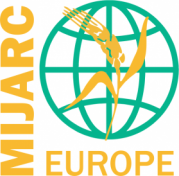
 In the context of the topic chosen for this year by our member movements – peace – we have launched an online campaign of peace messages and quotes under the #nevertakepeaceforgranted slogan. This campaign is part of our work plan which also includes two international activities and a travelling exhibition on the topic of peace. The first international activity of our work plan was preceeded by a preparatory phase during which our members had to interview/discuss with at least two people who had left their countries and are now know as “migrants”, “refugees” or “asylum seekers”. To our members they are just people, as are those living next to us. They have emotional and unusual stories, they live in different conditions but as our participants discovered they have not forgoten to be kind, tolerant, open and to forgive.
In the context of the topic chosen for this year by our member movements – peace – we have launched an online campaign of peace messages and quotes under the #nevertakepeaceforgranted slogan. This campaign is part of our work plan which also includes two international activities and a travelling exhibition on the topic of peace. The first international activity of our work plan was preceeded by a preparatory phase during which our members had to interview/discuss with at least two people who had left their countries and are now know as “migrants”, “refugees” or “asylum seekers”. To our members they are just people, as are those living next to us. They have emotional and unusual stories, they live in different conditions but as our participants discovered they have not forgoten to be kind, tolerant, open and to forgive. An article written by:
An article written by: Between the 2nd and 5th July 2017, MIJARC Europe ran the international youth peace camp “We are the others”, part of the annual work plan on the topic of peace. The peace camp took place in Portugal and it was co-financed by Renovabis.
Between the 2nd and 5th July 2017, MIJARC Europe ran the international youth peace camp “We are the others”, part of the annual work plan on the topic of peace. The peace camp took place in Portugal and it was co-financed by Renovabis.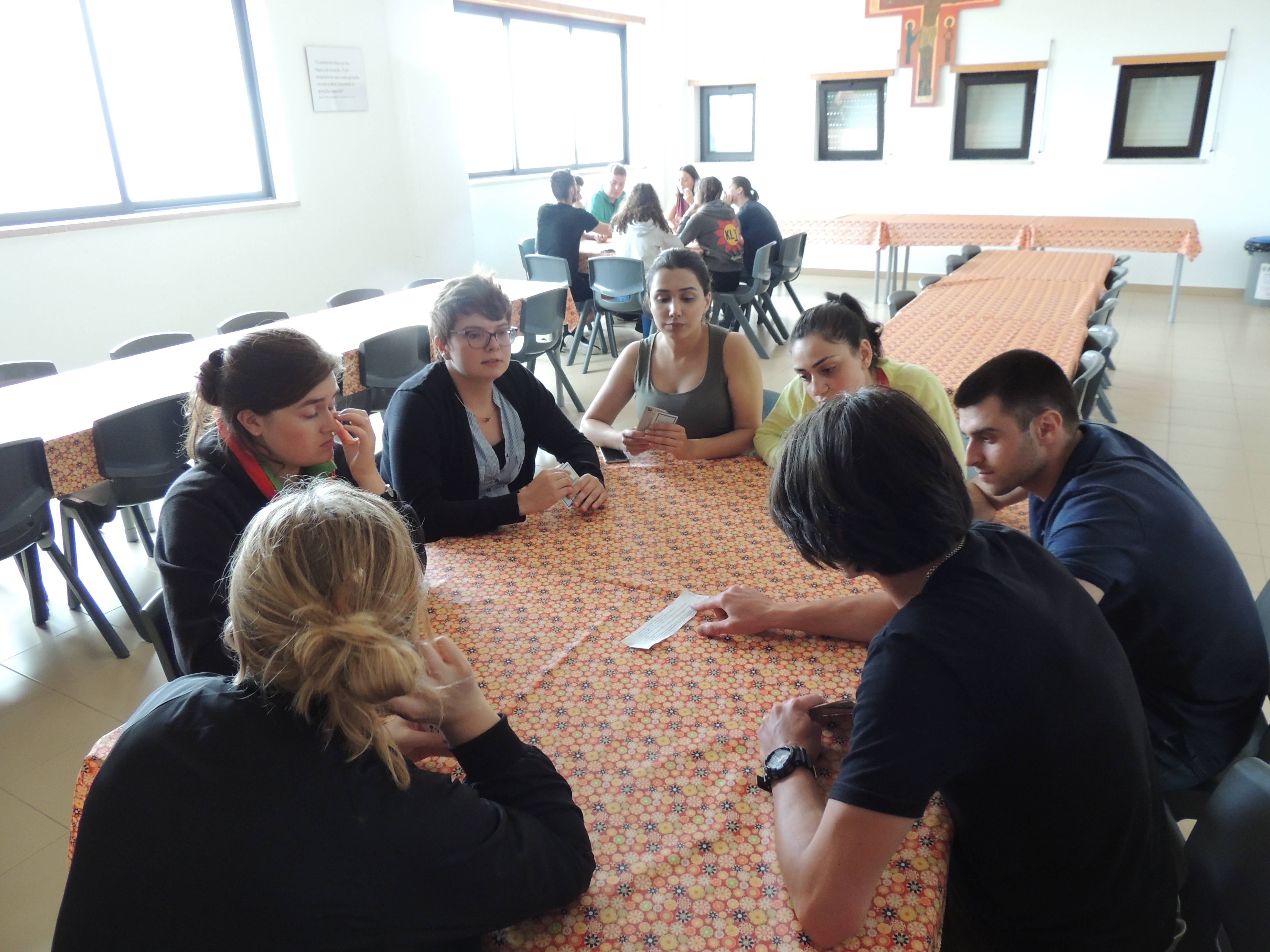 Even though Europe is still one of the most peaceful and prosperous parts of the world, there are some regions on the continent that have become unstable and more insecure and where acts of extremism and an increased fear towards the so-perceived “others” – migrants, refugees or asylum seekers and any minority group – have resulted in lower levels of tolerance, respect of human rights and freedom. In rural areas, conflict often appears because of competition for land and natural resources. In addition to this, poverty, lack of employment and opportunities of a better future can nurture resentment and cause fertile social contexts for intolerance and extremism. Also, for young people living in rural areas conflicts often have devastating consequences making them even more vulnerable.
Even though Europe is still one of the most peaceful and prosperous parts of the world, there are some regions on the continent that have become unstable and more insecure and where acts of extremism and an increased fear towards the so-perceived “others” – migrants, refugees or asylum seekers and any minority group – have resulted in lower levels of tolerance, respect of human rights and freedom. In rural areas, conflict often appears because of competition for land and natural resources. In addition to this, poverty, lack of employment and opportunities of a better future can nurture resentment and cause fertile social contexts for intolerance and extremism. Also, for young people living in rural areas conflicts often have devastating consequences making them even more vulnerable.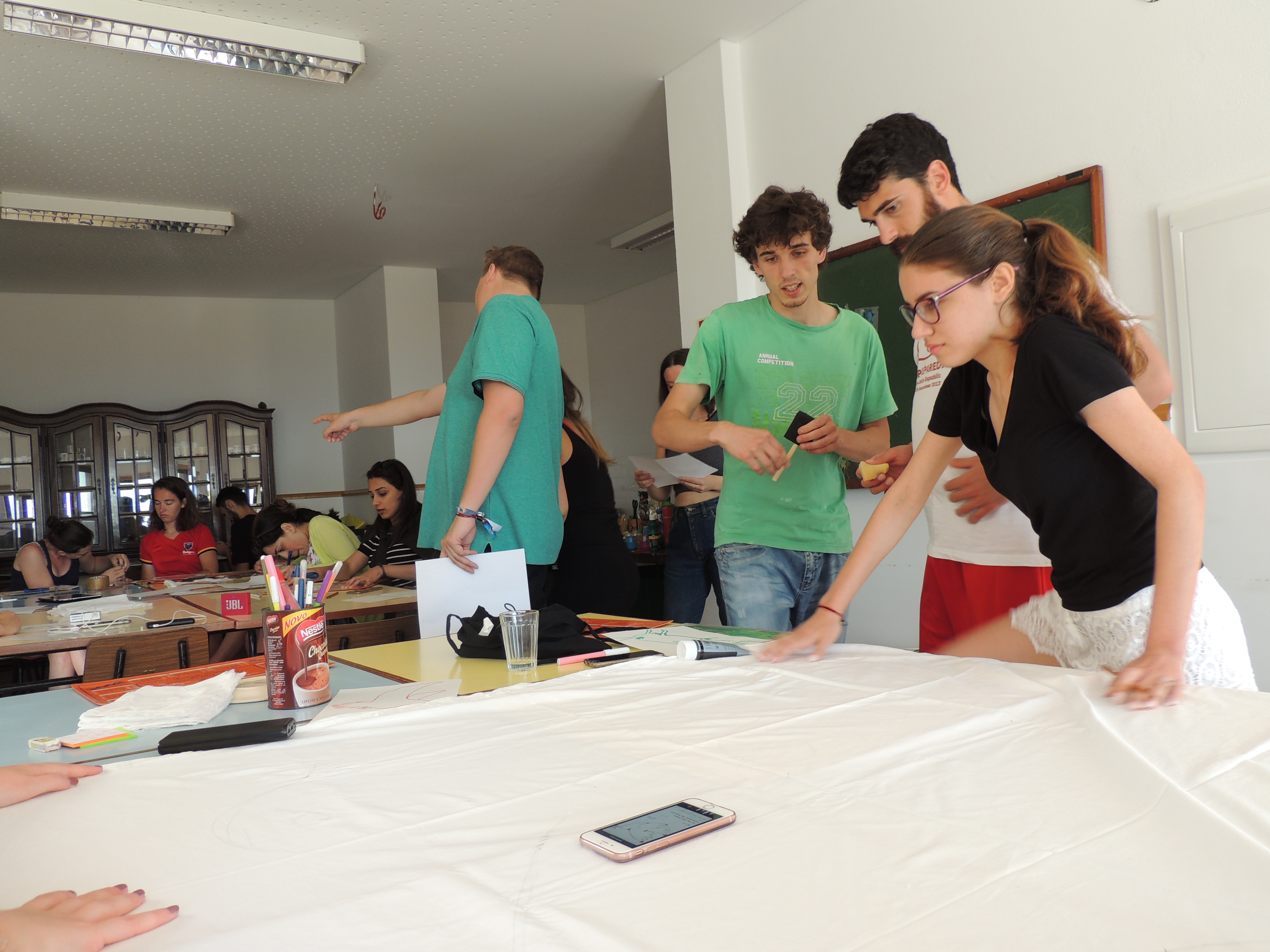 “We are the others” is a youth project that aims to prove everybody exactly what it says: that we all are responsible ourselves for all the situations we are part of. It sends the message that it is always in our power to generate change and play our positive role in our community, country, in Europe and around the world. The project aims to make the young people involved and those it reaches aware of the important and positive role they play in the maintenance and promotion of peace and security at all levels. Its objectives are to encourage tolerance, solidarity and intercultural dialogue exerted by young people as means of moving beyond the mistakes of the past and building the future, to help the rural young people participating in the project acquire intercultural competences in order to become more aware and active citizens for peace, countering radicalization and extremism, to promote a different narrative on the role of young people in conflict contexts depicting them as assets in peace building and peace maintaining and to create a tool for young people to spread their message of peace and social inclusion in their rural communities. It will do this by involving 30 young people from rural areas across Europe: Armenia, Belgium, Bulgaria, France, Germany, Italy, Malta, Portugal and Romania and migrants, refugees or asylum seekers located in Portugal. They all decided to join forces and invest in the development of their intercultural competences in order to be more prepared to work and live with vulnerable groups, to promote social inclusion in their communities and diffuse tensions that appear whenever we see those different from us as “the others”. Through the project, the young participants will create together a Position Paper and a travelling photo exhibition that will include portraits and stories of conflict and peace and photos that will suggest solutions for what young people can do today in order to build a safer and peaceful future.
“We are the others” is a youth project that aims to prove everybody exactly what it says: that we all are responsible ourselves for all the situations we are part of. It sends the message that it is always in our power to generate change and play our positive role in our community, country, in Europe and around the world. The project aims to make the young people involved and those it reaches aware of the important and positive role they play in the maintenance and promotion of peace and security at all levels. Its objectives are to encourage tolerance, solidarity and intercultural dialogue exerted by young people as means of moving beyond the mistakes of the past and building the future, to help the rural young people participating in the project acquire intercultural competences in order to become more aware and active citizens for peace, countering radicalization and extremism, to promote a different narrative on the role of young people in conflict contexts depicting them as assets in peace building and peace maintaining and to create a tool for young people to spread their message of peace and social inclusion in their rural communities. It will do this by involving 30 young people from rural areas across Europe: Armenia, Belgium, Bulgaria, France, Germany, Italy, Malta, Portugal and Romania and migrants, refugees or asylum seekers located in Portugal. They all decided to join forces and invest in the development of their intercultural competences in order to be more prepared to work and live with vulnerable groups, to promote social inclusion in their communities and diffuse tensions that appear whenever we see those different from us as “the others”. Through the project, the young participants will create together a Position Paper and a travelling photo exhibition that will include portraits and stories of conflict and peace and photos that will suggest solutions for what young people can do today in order to build a safer and peaceful future.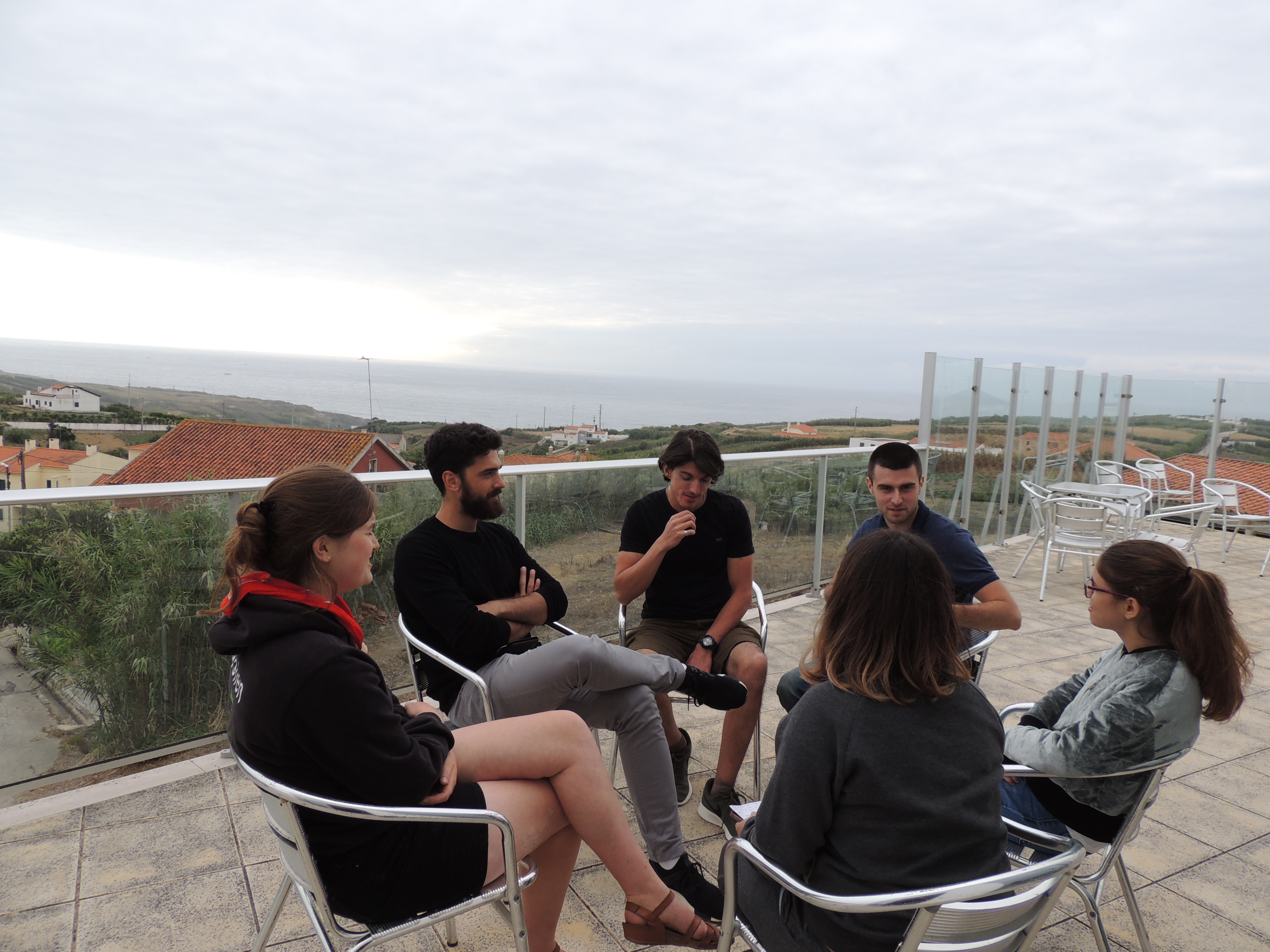 The exhibition will be accompanied by an educational booklet, containing activities designed by the participants that can be done with the exhibition. This exhibition will travel to eleven different countries, to meet with 500 young people and it will also be displayed at a peace festival where it will be seen by more than 5,000 young people from all over Europe.
The exhibition will be accompanied by an educational booklet, containing activities designed by the participants that can be done with the exhibition. This exhibition will travel to eleven different countries, to meet with 500 young people and it will also be displayed at a peace festival where it will be seen by more than 5,000 young people from all over Europe.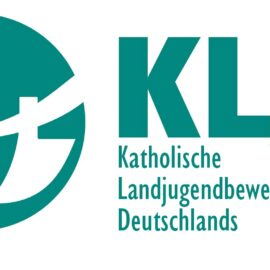
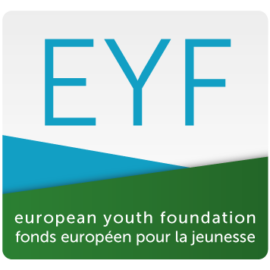
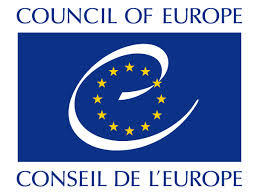
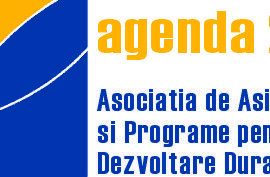
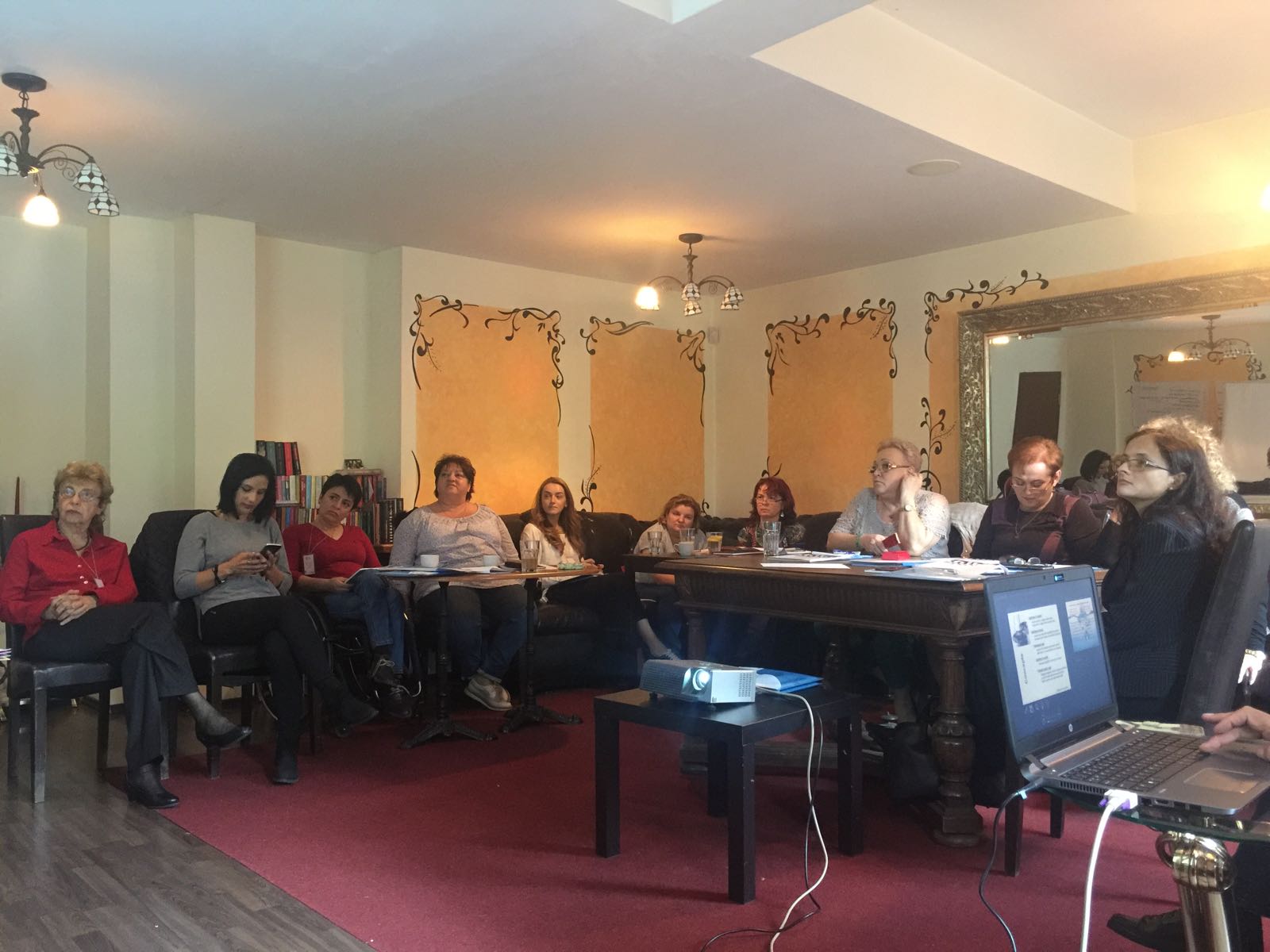 One of the main conclusions of the meeting was the importance of education, in formal and non-formal contexts, for both victims and authors of extremist acts. The representatives of the school inspectorates who were present at the meetings suggested that the topic could be approached by the Master teachers during the counselling classes. Another conclusion was that it would be very important if there were funds dedicated to organizing proper information/awareness-raising sessions or workshops/seminars with students of all ages.
One of the main conclusions of the meeting was the importance of education, in formal and non-formal contexts, for both victims and authors of extremist acts. The representatives of the school inspectorates who were present at the meetings suggested that the topic could be approached by the Master teachers during the counselling classes. Another conclusion was that it would be very important if there were funds dedicated to organizing proper information/awareness-raising sessions or workshops/seminars with students of all ages.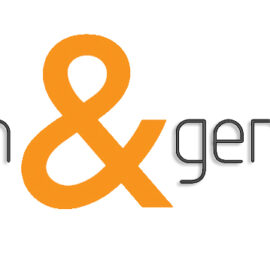
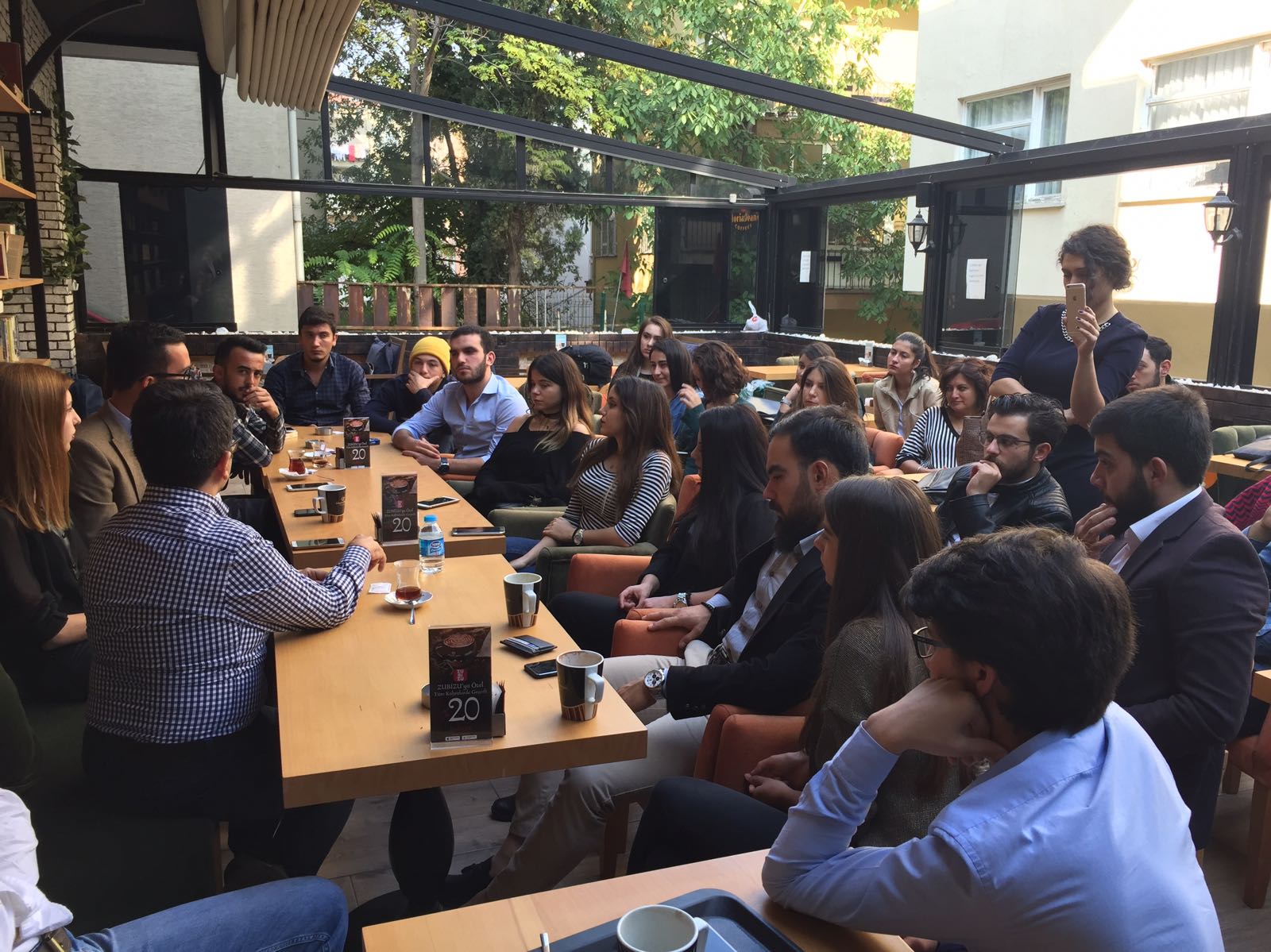 The round tables started with a presentation of MIJARC Europe and the projects it had developed with S&G and it continued with a session in which those attended had the chance to reflect on their own knowledge, attitude and general feelings towards extremism and radicalization. Next, the attendees were involved in a discussion with a professor for Gazi University, trying to find an answer to the question “What can be done in order to prevent or reduce the frequency of these acts?”. The SWOT analysis method was used for the suggested solutions. The entire event enabled the participants to enrich their knowledge on the topic of extremism and to use it in order to bring about a change in attitude in their communities.
The round tables started with a presentation of MIJARC Europe and the projects it had developed with S&G and it continued with a session in which those attended had the chance to reflect on their own knowledge, attitude and general feelings towards extremism and radicalization. Next, the attendees were involved in a discussion with a professor for Gazi University, trying to find an answer to the question “What can be done in order to prevent or reduce the frequency of these acts?”. The SWOT analysis method was used for the suggested solutions. The entire event enabled the participants to enrich their knowledge on the topic of extremism and to use it in order to bring about a change in attitude in their communities.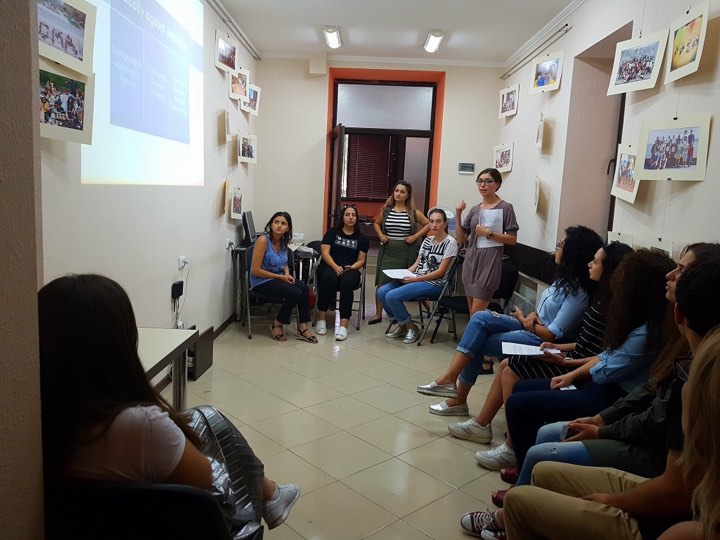 There were
There were 